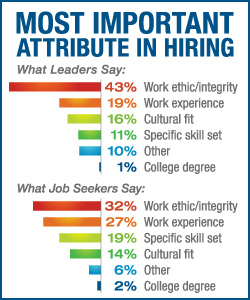Gust Post: Marcela De Vivo
It seems like no matter how good the job market is, it’s still nearly impossible to sail through the interview process and land the job of your dreams. Between never knowing what employers really want, and making yourself memorable among all the competition, getting a job can be brutal. But what might be even more difficult is actually earning a degree that will help you get noticed. A college degree is quickly becoming a necessity in the job world, but when college is so expensive, what should you do?
Unfortunately, far too many students borrow money, and suddenly, they are so deep in loan debt, they can’t even see past their next paycheck. Studies have shown that 37 million people in America carry debt that they accumulated in college, due to the amount of loans they took out. Without being educated on a better financial plan to pay for college, students get stuck with debt they have no way of paying back. So, before you jump into the world of loans, educate yourself on the cost of a college education. It’s always better to be informed.







